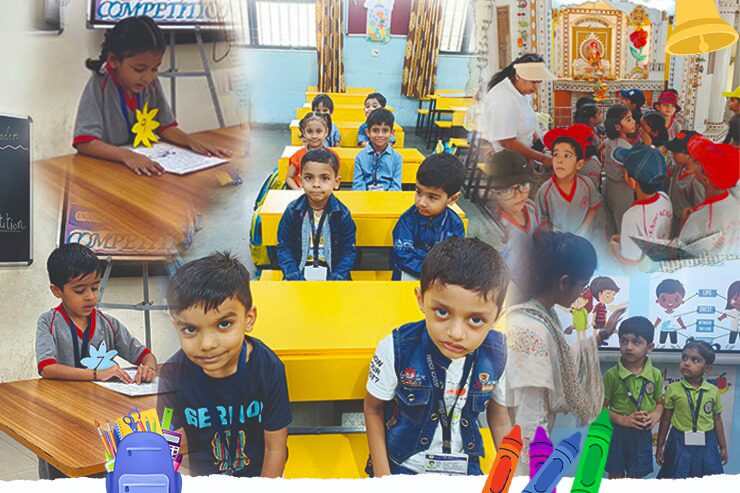The early years of learning are essential for building a strong foundation to carry higher values forward. Children at this stage are like sponges; they absorb new concepts, social cues, and life skills. One of the most effective methods that fosters learning is positive reinforcement. ICSE schools focus on holistic development and understand the importance of positive reinforcement during this crucial stage.
What Exactly is Positive Reinforcement?
Positive reinforcement refers to the practice of rewarding desirable behaviors to promote their repetition. Rather than focusing on punitive measures for mistakes, positive reinforcement promotes an environment where students are motivated to continue their good behavior and academic efforts. In early childhood, rewards could range from verbal praise to small tangible rewards or even additional privileges.
The Impact of Positive Reinforcement in Early Childhood
At Friends’ Academy, we believe that positive reinforcement cannot be neglected, and hence, we actively implement it during the early learning years. Below are a few benefits that make this practice essential.
1. Builds Confidence and Self-Esteem
In the formative years, children develop their self-worth and confidence based on their experiences in the classroom. When they are consistently praised for their efforts and achievements, whether it’s completing a task or exhibiting good behavior, they begin to feel competent. This boosts their self-esteem and motivates them to strive for success. We never miss praising our children, regardless of their section, as it keeps them motivated to move forward.
2. Encourages Active Participation
Positive reinforcement fosters an environment where students are eager to participate. By rewarding active involvement in classroom discussions, group activities, and tasks, children learn the value of being engaged. It also helps them feel valued in the classroom community, encouraging them to contribute more.
3. Strengthens Desired Behaviors
ICSE schools emphasize a balanced approach to learning, where good behavior is just as important as academic success. Whether it’s following instructions, being respectful to peers, or showing kindness, positive reinforcement strengthens these behaviors by making students realize the benefits of such actions. Over time, students internalize these behaviors, making them habitual.
4. Creates a Supportive Learning Environment
Positive reinforcement helps create a nurturing and supportive classroom atmosphere. Children thrive in environments where they feel safe, encouraged, and appreciated. When teachers acknowledge and reward their efforts, it fosters a positive relationship between students and educators, paving the way for improved learning outcomes.
Positive reinforcement is more than just a teaching tool—it’s a cornerstone of fostering a love for learning in the early years. By reinforcing good behavior and achievements, children in schools develop a strong foundation of self-belief, confidence, and curiosity. At Friends’ Academy, we continue to use this powerful method to ensure that every child has the opportunity to thrive academically and socially.
At Friends’ Academy, we believe in nurturing young minds through positive reinforcement. Our teachers actively use praise, encouragement, and rewards to motivate students in their learning journey. By recognizing and celebrating their achievements—big and small—we help our students develop confidence, creativity, and a passion for learning. As an esteemed ICSE school in Mulund, we understand that positive reinforcement is not just about academic excellence but also about fostering emotional growth and social skills.



